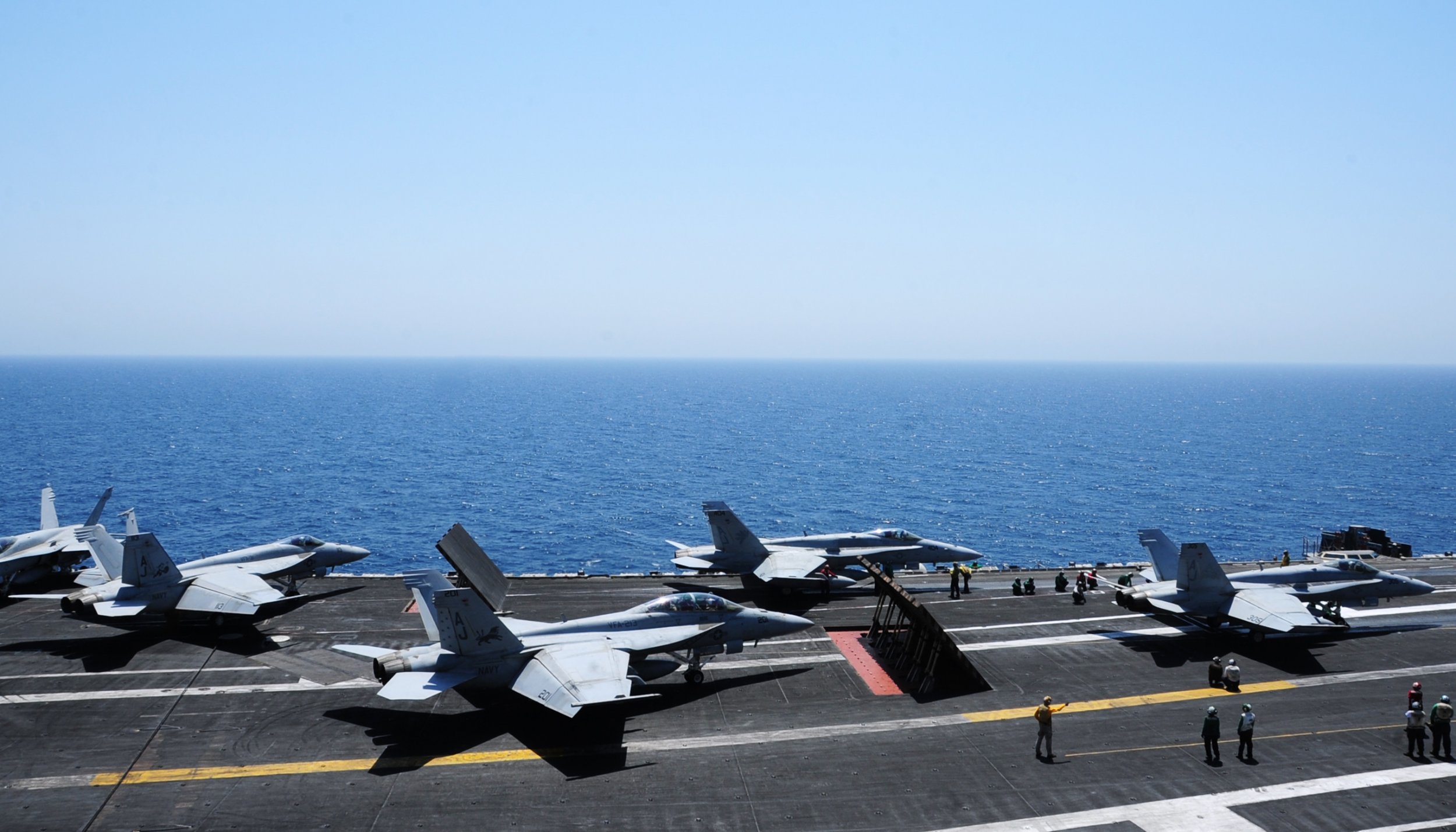
The United States will break with the Iraqi government of Nouri a-l-Maliki this weekend and provide heavy weapons to the lightly armed forces of the Kurds, who are fighting to defend their capital, Erbil, against the Islamic State terrorist army.
The U.S. is also preparing to make strategic air strikes in support of Kurdish forces. IS fighters armed with heavy artillery and American weapons are advancing fast on the northern Iraqi city of Erbil, where up to 50 U.S. diplomats and an undisclosed number of U.S. troops are based. That is the view of Peter Galbraith, a former U.S. ambassador to Croatia and now a fellow at the Center for Arms Control and Non-Proliferation in Washington DC.
Early Friday morning, U.S. air strikes took place against IS artillery positions that have been pounding Erbil, a city of 1.5 million, at least before residents began fleeing.
Two U.S. Navy F-18 fighter jets from the aircraft carrier USS George H.W. Bush in the Persian Gulf dropped 500-pound laser-guided bombs in the first of an expected series of air raids on IS forces.
"That should have an enormous psychological impact for the Kurds," Galbraith told the BBC. "There was maybe not quite the beginning of panic in the city but a lot of people were leaving."
The decision to arm the Kurds, despite longstanding opposition from the Maliki government in Baghdad, comes as the Kurdish forces, known as the Peshmerga—literally "those who confront death"—are being outgunned by IS militants whose weapons, equipment and armed personnel carriers were captured from the fleeing Iraq Army.
"ISIS is well armed—armed by the United States—thanks to all the weapons that the United States provided to the Iraqi Army that ISIS was able to take over," Galbraith explained to the BBC. "Particularly threatening, the Kurds tell me, is the armored American Humvee because, basically, small arms, which is what the Peshmerga have, are ineffective. The United States had refused to arm the Peshmerga because the [Maliki] government of Baghdad had objected. That policy is changing this weekend and arms are coming in," he said.
American humanitarian air strikes to help the hundreds of thousands of refugees escaping the "convert to Islam or die" ultimatum of IS occupiers will not be able to prevent deaths through starvation, thirst and exposure, the U.N says. The only means of saving such a large numbers of lives will be to retake the northern Iraqi city of Sinjar from IS to allow the refugees to return home.
U.S. army transport planes are currently dropping limited numbers of daily ration packs containing protein and carbohydrate-packed dishes such as lentil stew and beans with rice.
"[Supplying the Yazidi refugees by air] is really a short-term measure because there is really no way that the airdrops of water and food can really take care of the population," Galbraith said. "They are still going to be dying. And so I think the next step—and [Obama] seems to have left the door open for that—would be air strikes in support of the Kurdish military, the Peshmerga, as they try to retake Syngar to enable these people to come home."
The Kurdish forces are contending with several severe disadvantages in their effort to defeat the IS advance, Galbraith said. "They now have a 650-mile border with ISIS [an alternative description of IS] … and they need to defend the whole thing. ISIS on the other hand is very mobile and can choose the point where it attacks.
"Secondly, when ISIS comes to an area they terrify the population so they flee, particularly in these minority areas, so the defenders are not only coping with the enemy that is attacking but a panicked population."
The fanatical nature of the Sunni IS terrorists also puts the Kurds at a disadvantage. "As one of the Kurds pointed out to me, our people are prepared to fight for a cause but we don't want to die," Galbraith said. "They are facing people who do want to die."
Uncommon Knowledge
Newsweek is committed to challenging conventional wisdom and finding connections in the search for common ground.
Newsweek is committed to challenging conventional wisdom and finding connections in the search for common ground.
About the writer
Nicholas Wapshott has worked as a writing and editing journalist at the top levels on both sides of the Atlantic. ... Read more





